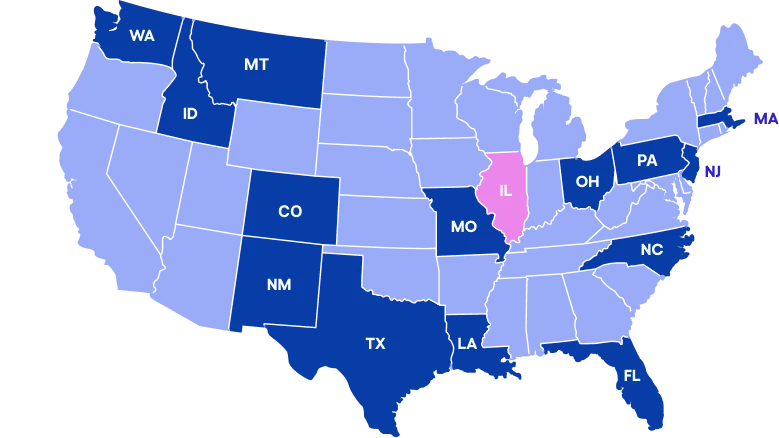
Online addiction therapy, also known as teletherapy or telehealth services, has gained significant momentum. It offers individuals struggling with substance use disorders a convenient way to connect with licensed and qualified addiction counselors.
While online addiction counseling is similar to regular in-person therapy, it has its own special benefits. The biggest advantage is that you can have therapy sessions from anywhere you feel comfortable, without having to travel. This makes it easier to fit into your schedule. There are different ways to do online addiction counseling, so you can choose what works best for you. Sessions are conducted over video and can be accessed on any internet-enabled device with a camera.

As with any form of therapy, it is normal to have questions and concerns about what to expect during online addiction counseling. Here’s a glimpse into the typical process.
Before your first session begins, you will receive instructions on how to access the virtual therapy platform. Make sure your device (computer, tablet, or smartphone) is ready, and your internet connection is stable. Test your audio and video settings to make sure everything works smoothly.
At the beginning of your first therapy session, your addiction counselor will introduce themselves, explain their background, and give an overview of how the counseling sessions will proceed.
Your first session is meant to get to know you. You’ll discuss your reasons for seeking therapy, any specific issues you’re facing, and your goals for online treatment. It’s a safe space, so sharing openly will help your therapist better understand your needs.
Your therapist may ask questions about your personal history, including medical, psychological, and social aspects, to fully understand your background and current state of substance use. All of this information is used to create your personalized treatment plan.
After your first session, you’ll begin each new appointment with a check-in. You’ll discuss any changes since the last session, including any challenges or accomplishments. Throughout your time in treatment, your therapist will continue to assess your progress and may adjust the treatment plan as necessary. This ensures that your therapy sessions are effective and relevant to your evolving needs.
Online therapy sessions will often include learning and practicing new skills or techniques. This may involve cognitive-behavioral strategies, mindfulness exercises, or other therapeutic interventions. Your therapist might give you homework assignments to reinforce what you learn during counseling sessions. These are designed to help you practice skills and reflect on your experiences between sessions.
When it comes to online addiction counseling, we use evidence-based treatments that have been adapted to the virtual environment. While your treatment plan will be personalized, here are some of the proven therapies we commonly use:
At the heart of CBT is the idea that our thoughts, feelings, and behaviors are interconnected, and by changing negative thought patterns, we can change behaviors and emotions. Especially effective in treating substance use, cognitive behavioral therapy helps you identify and cope with triggers through practical skills, reducing the risk of relapse. Its adaptability to individual or group settings makes it a versatile tool in recovery.
This caring, person-focused method helps people find their own reasons to change by addressing their mixed feelings. Unlike more direct therapies, MI involves a two-way conversation that helps you see that you can change your addiction. It’s especially useful at the start of treatment, creating a strong base for future therapy sessions.
Initially developed for borderline personality disorder, DBT has been adapted for addiction treatment, addressing the intense emotional swings often experienced. It combines CBT techniques with mindfulness practices, helping individuals gain better emotional and behavioral regulation. DBT’s focus on acceptance and change helps you with coping strategies for stress, reducing the likelihood of relapse.
Family therapy incorporates the entire family unit in sessions to address the dynamics that may be contributing to addiction and mental health disorders. The goal of these sessions is to improve communication within the family, facilitate open discussions about feelings and expectations, and showcase how changes in the system can lead to positive outcomes.

Eleanor Health currently accepts members in Colorado, Florida, Idaho, Louisiana, Massachusetts, Missouri, Montana, New Jersey, New Mexico, North Carolina, Ohio, Pennsylvania, Texas, and Washington (Illinois coming soon). Our services are available remotely from anywhere in the state.
You can do your entire treatment online, including getting a prescription for suboxone or other FDA-approved addiction medications to stabilize your physical health. From the beginning, you will work on getting better with our counselors and peer recovery specialists.
We provide comprehensive online addiction treatment options, including individual counseling, group therapy, peer support groups, and medication-assisted treatment. Our addiction specialists tailor treatment planning to your specific needs, combining different therapeutic approaches for the best possible outcomes.
Our virtual group counseling sessions are conducted through secure video platforms. These support groups allow you to connect with others on similar recovery journeys while maintaining privacy from your own space. Group therapy provides valuable emotional support and helps build a strong support network.
Yes, we work with various insurance providers to make treatment accessible. Our team will verify your insurance coverage before beginning treatment. Many insurance plans cover both individual counseling and group therapy sessions for addiction treatment.
We maintain strict confidential case management protocols. All our online therapy services are conducted through HIPAA-compliant platforms, ensuring your privacy and security during online substance use treatment with your addiction counselor.
Yes, we specialize in co-occurring treatments, addressing both addiction and mental health concerns simultaneously. Our addiction specialists are trained to provide comprehensive care that supports your complete recovery journey.
Beyond regular therapy sessions, you’ll have access to a robust support network including peer support specialists, case managers, and healthcare providers. We offer ongoing emotional support and practical guidance throughout your recovery journey.
Treatment frequency varies based on your individual needs and treatment planning goals. Your counselor will work with you to establish a schedule that provides appropriate support while accommodating your daily responsibilities.
We know reaching out can be hard. Call today to speak with one of our recovery specialists. We will listen, learn, and offer support – without judgment. We welcome every person in need of support and we believe in you and your ability to overcome addiction.